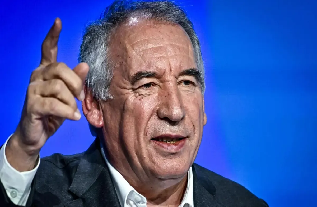French President Emmanuel Macron has appointed Francois Bayrou as the new Prime Minister of France, a decision announced on December 13, 2024. This marks Bayrou’s entry into the role during a period of significant political upheaval, following the recent ousting of former Prime Minister Michel Barnier.
Bayrou, a seasoned centrist politician and a close ally of Macron, is tasked with navigating the complexities of a deeply fragmented parliament. His appointment comes just days after Barnier’s government was toppled due to a no-confidence vote, which was largely a reaction to contentious budget proposals aimed at addressing France’s substantial deficit.
Political Context
The political landscape in France has been tumultuous, characterized by a lack of majority control in the National Assembly, where various factions—including leftist and far-right parties—have united against government proposals. This fragmentation has made governance increasingly challenging for Macron, who had hoped to stabilize his administration through Barnier’s leadership. However, Barnier’s attempts to pass a €60 billion budget cut were met with fierce opposition, leading to his resignation just three months into his tenure.
Bayrou’s immediate priority will be to pass legislation that rolls over the existing 2024 budget, while preparing for an even more contentious debate over the 2025 budget. Analysts predict that he will face similar challenges as his predecessor in garnering support from rival factions within parliament.
Bayrou’s Background
At 73 years old, Bayrou brings decades of political experience to the role. He has previously run for the presidency three times and has held various ministerial positions, including a brief stint as Justice Minister under Macron in 2017. His political career has not been without controversy; he was recently cleared of charges related to alleged embezzlement involving European Parliament funds.
Despite his extensive experience, Bayrou’s close association with Macron could pose challenges, as public sentiment toward the president remains low amidst ongoing political instability. Macron has expressed his commitment to remaining in office until the end of his term in 2027, but the future of his government remains uncertain if it cannot secure legislative support.
Looking Ahead
As Bayrou prepares to form his government in the coming days, he faces an uphill battle against entrenched opposition from both sides of the political spectrum. The left is advocating for increased public spending and higher taxes on wealth, while the far-right is pushing for cuts to social services and reductions in EU contributions.
Investors are watching closely as France’s economic outlook remains precarious, with rising borrowing costs reflecting concerns about fiscal management amid this political turmoil310. The coming weeks will be crucial for Bayrou as he seeks to establish a stable government capable of addressing France’s pressing economic challenges while navigating a divided parliament.



